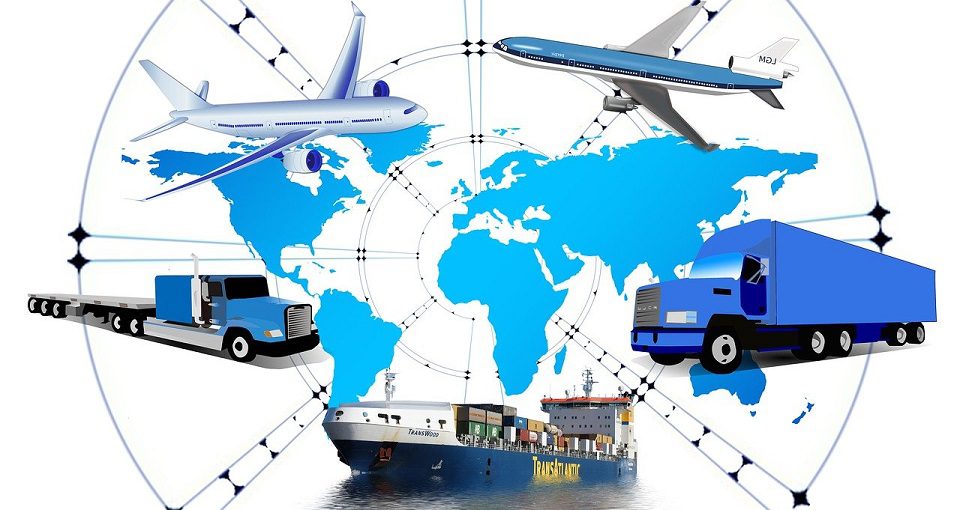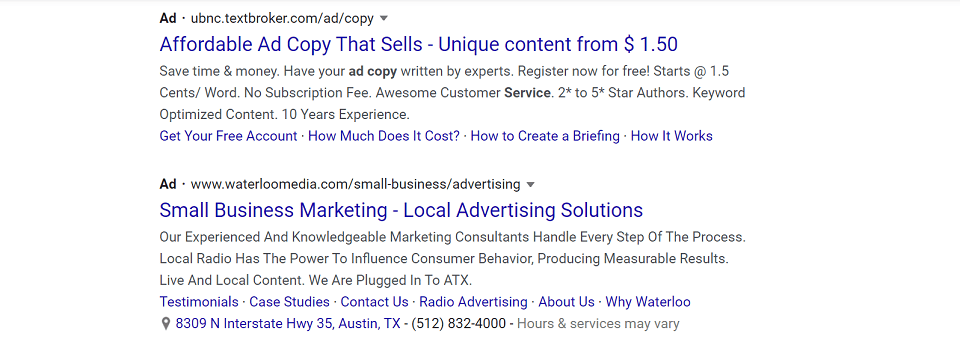Supply chain and logistics businesses have turned fierce. Companies are investing heavily to build customer relationships and overcome freight challenges.
In fact, the global logistics market was valued at $7,641.2 billion in 2017. It is projected to reach $12,975.6 billion by 2027 — registering a CAGR of 6.5% from 2020 to 2027.
But despite the growing numbers, many supply chain and logistics businesses have continued to ignore the industry’s widespread adoption of digital marketing within their own business strategies.
There are two major reasons I think we are seeing this trend. Firstly, most B2B companies or industries are of the impression that digital marketing won’t help.
Second, companies with smaller target audiences think that they don’t need to invest in digital marketing.
However, companies like Amazon use digital marketing techniques in their order fulfillment systems. Customers, in response, now have elevated expectations for fulfillment processes with all vendors.
The point is, there are various reasons for using well-devised digital marketing strategies in supply chain and logistics businesses.
Why Is Digital Marketing for Logistics Companies Important?
To stand out in such a competitive market where the target audience expects you to be swift and connected at all times, digital marketing technologies can help you win the game.
Considering the challenges that logistics and supply chain businesses face, we have pulled together a list of the five reasons for adopting digital marketing in your logistics business.
1. Targets the Most Relevant Audience
Irrespective of how large or narrow your business is, be sure to start the process by clearly defining your target audience. When you have a target audience in mind, you can focus only on the ones that have the potential to deliver a profit to you.
Thus, the digital marketing tools and strategies help you determine your target audience’s behavior — what triggers action and what information they are seeking.
No matter whether you’re a B2B or a B2C company, a comprehensive competitive analysis will help you in narrowing your target audience, which in turn can help you build the most relevant content. Be sure to analyze what competitors are doing well during the process for the most upside.
2. Provides an Opportunity to Become a Thought Leader
Amazon has emerged as an industry leader in supply chain management. This is due to the way they have innovated the supply chain and logistics through the use of digital marketing methods.
To become a thought leader, you must first gain your customers’ trust and provide them with something valuable. That’s exactly what Amazon did.
They built an extensive network of warehouses, automated their inventory management, and incorporated technology to stand out. In addition, content marketing and social media marketing played a significant role in building out their success.
Even in B2B, content marketing leads potential customers to an informative and engaging medium. This increases trust and moves visitors down the funnel.
As a result, you can keep providing relevant content throughout the sales funnel until your visitors convert to leads.
3. Delivers Measurable Results
Any business needs to track metrics or KPIs (key performance indicators) to ensure they are going in the right direction.
This is one of the best things about digital marketing — it is completely trackable.
Digital marketing lets you set up goals and gives you measurable metrics to track throughout your marketing campaign.
Even if you have a large amount of data, an analytics platform will sort it and provide insight into what is driving better ROI.
4. Boosts Customer Engagement
Digital marketing has proved to be phenomenal for boosting customer engagement. For example, FedEx capitalized on social media to achieve customer service success.
The FedEx team reaches their customers through various channels including email, blogs, and social media such as Facebook and Twitter. Throughout the process, a customer service team monitors online mentions and digital conversations about FedEx.
FedEx then uses an internal scorecard to rate how fast the support team responded to the buzz.
Furthermore, FedEx uses digital marketing platforms to run various contests and giveaways, which increase engagement and bring in more loyal customers.
5. Increases Conversion Rates
When you have higher engagement, you will eventually see an increase in conversion rates.
Increasing conversion rates should be a key component of any digital marketing strategy.
When you have a digital marketing strategy in place, you’re more likely to see an increase in revenue per visitor. This, in turn, will improve your ROI and lower your customer acquisition costs.
Digital Marketing for Logistics Companies: Tactics to Adopt Now
With these benefits in mind, here are some of the most important digital marketing tactics to implement.
Optimize Your Website for Customers
Customers are paramount for any business. Before buying a product or service, 90% of the customers conduct online reviews and research to know if the brand is legit enough.
Therefore, focus on providing a better user experience, and conduct A/B tests to see which version of your web pages grab more attention.
Focus on Improving SEO
SEO doesn’t only bring in organic traffic. It also helps you establish a reputable online presence.
By effectively implementing SEO strategies like writing helpful blogs, optimizing on-page SEO, and creating backlinks, you will eventually help Google understand your website better. In turn, they’ll drive relevant traffic back to your domain.
Social Media Marketing
Our purchasing decisions are heavily influenced by social media. As a result, logistics companies can use popular social media platforms such as LinkedIn or Facebook to position themselves as thought leaders and generate qualified leads.
As an added benefit, social media provides you with an opportunity to immediately respond to customer inquiries. This type of rapid customer service can build trust and foster strong relationships with your target audience.
Conclusion: Digital Marketing for Logistics Works
You now understand why digital marketing is critical in any supply chain or logistics business.
When you have a customer’s trust, you’re likely to enjoy better conversion rates and improved customer retention. Digital marketing acts as a channel for bridging the trust.
When you have the right digital marketing strategies and tools in place, you will undoubtedly differentiate yourself from competitors and produce better results.
Feature Image Credit: Pixabay Free for Commercial Use License
Disclaimer: The views and opinions stated in this post are that of the author, and Return On Now may or may not agree with any or all of the commentary.
This guest post brought to you courtesy of Return On Now, Professional Austin SEO and PPC Services Company.





